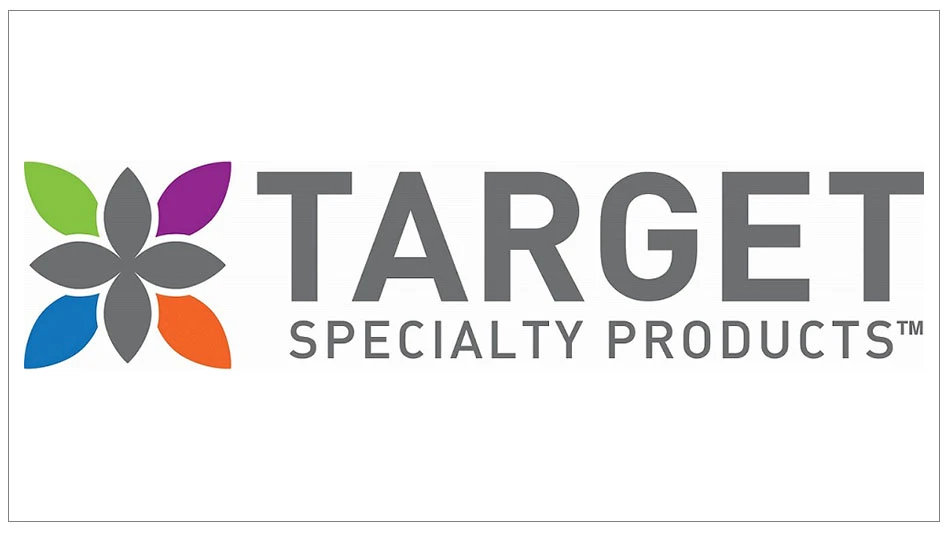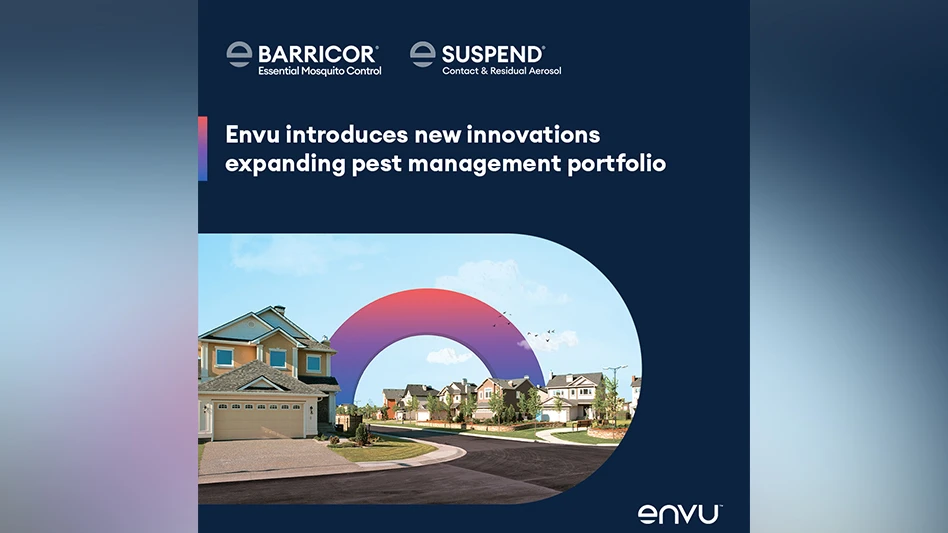
Last year, residential pest control saw record growth. Phones rang, online inquiries poured in and, for many pest management professionals, it was a race to keep up. This year, commercial sales are on the rise as businesses hit hard during the pandemic have reopened.
Unfortunately, banner sales in a post-pandemic world are not a sure thing. In fact, pest control companies without a strong sales strategy may lose out to more sophisticated competitors.
Companies with revenue of $500,000 to $800,000 often have no idea how to develop a sales team, nor do they necessarily want to, says Kevin Pass, who founded Pass Pest Control in Newburgh, Ind., after selling Action Pest Control, which he built into a $12 million company.
“At some point, if you want to grow past that million-dollar mark, you have to have a sales focus,” says Pass.
Even at smaller companies, which might not have the revenue yet to support hiring salespeople, the sales function cannot be overlooked or left to chance.
“If you don’t market your business properly and don’t develop a powerful sales program, you’re going to be one of those 82 percent of small businesses that doesn’t make it to the end of the third year because they didn’t have enough customers and enough revenue and they went broke,” says Hal Coleman, a sales and marketing consultant who ran his own pest management company for 18 years.
Of course, it’s not wise to push sales without also scaling operations to accommodate the increased workload. The two must go hand-in-hand. (See below.) PMPs with strong sales programs shared with PCT strategies that work for their organizations:
Inside Sales
Inside salespeople handle leads that come in by phone, email and text.
Green Pest Solutions in West Chester, Pa., has three inside sales representatives who manage inbound leads. Their goal is to quickly close the sale, schedule the initial service visit and capture payment in one call. This generally takes less than 10 minutes, says Alex Wolfington, the company’s sales vice president.
Salespeople work from a presentation that sets the company apart from competitors. It highlights what Green Pest Solutions can provide the potential client and the benefits of its recurring general pest program (versus a one-time fix).
By providing a quote immediately instead of waiting for an inspection, salespeople reduce the likelihood that customers will shop around. And immediately scheduling that first service visit eliminates buyer’s remorse, resulting in fewer cancellations, says Wolfington.
Software, websites (Zillow, Google Maps) and existing customer data make it possible to accurately quote some types of general pest control, such as exterior perimeter services, without an inspection.
It’s important to “be very knowledgeable of what your competition is charging for their services,” adds Wolfington, who consistently updates how salespeople are evaluated (key performance indicators) and adjusts selling practices to improve the customer experience.
Some pest management companies have customer service representatives (CSRs) handle inside sales. These functions are separate at Green Pest Solutions.
“Sales teams should always be selling, and customer service teams should always be meeting the needs of our customers and supporting the company,” Wolfington explains.
CSRs currently handle inbound leads at Rose Pest Solutions, based in Troy, Mich., but the company may switch to inside sales reps to reduce the time between receiving a residential service lead and the initial service visit. “The shorter you can make that cycle, the better off the results,” says Bill Welsh, the company’s vice president of sales and regional manager in Kalamazoo, Mich.
Typically, an inside sales team can connect with more potential customers each day than an outside sales team.
Outside Sales
Selling jobs over the phone or email works for some general pest services; others require an in-person inspection to determine conducive conditions and to provide an accurate quote. Examples are bed bug, wildlife and termite work.
Inside sales, or customer service representatives, turn these leads over to outside salespeople (sometimes called sales inspectors), who conduct site visits and typically close the sale at the customer’s door.
Outside salespeople also sell commercial work. Some companies have separate commercial sales teams, since these sales take longer to complete. Prospects typically have a pest control provider already, so the task is to get them to cancel their current provider and switch over.
“You’re not going to build your business commercially by waiting for them to call you. You’ve got to go out and get them,” says Welsh, Rose Pest Solutions.
This often starts with cold-calling prospects. The commercial salespeople at Action Pest Control “were cold-calling commandos,” recalls Pass. Your company’s reputation influences how likely prospects will listen to your sales presentation.
The goal is to build a long-term relationship with decision makers, says Jeff Dunn, sales leader at Northwest Exterminating, a Rollins company in Marietta, Ga. When key procurement and environmental services personnel move to other facilities, “oftentimes they take us with them,” he says.
Door-to-Door Sales
Selling residential pest control door-to-door is not new. Companies have long reached out to customer neighbors to sell service and increase route density. But it has become much more widespread and effective in recent years.
Direct-to-home selling helped Aptive rise to the No. 7 spot on the PCT Top 100 list with revenue of $268 million in 2020. (It entered the list in 2017 at No. 21 with $37 million in revenue.)
But instead of canvassing entire neighborhoods, Aptive salespeople direct their efforts to the households most likely to buy pest control service and remain long-term customers, thanks to a prospecting program that uses big data and machine learning.
The more data salespeople enter into the software program, the better it identifies potential customers. “Every knock, every sale, every outcome, we become more intelligent for the future,” says Vess Pearson, Aptive CEO.
Pass Pest Control hired a contractor to conduct door-to-door sales. “We see that as a big potential for us. It’s not without its pitfalls, but I think it’s going to become more the norm” for the industry, said Pass.
Even during the pandemic, door-to-door sales worked. “People actually were starving to have conversations,” said Pass. Salespeople wore PPE and practiced social distancing. They talked about the company’s disinfecting service, which got customers’ attention, and then general pest services.
To ensure salespeople weren’t over-promising and that customers understood they’d signed up for a service program (versus one-time service), an employee followed up by phone to confirm service details. Pass calls this the “testing for truth” program.
“That really helps your retention and makes sure that your salespeople are out there saying all the right things,” he explains.
Northwest Exterminating employees go door-to-door in new housing communities where the company performed termite pre-treatments. The goal is to let people know their homes are protected from termites for a year and that they don’t need to buy additional protection, which other companies are selling direct to home.
Employees tell homeowners they’ll be alerted when their termite warranty comes due; they also provide information on general pest, mosquito and lawn care services.
Referral Sales
Referrals are key to any sales process. When a potential customer is referred to your company by a trusted source, ears and wallets open more readily.
Pass Pest Control sales staff are expected to close inbound leads and generate their own leads by asking new customers for referrals. This helps reduce the cost of leads, which range from $50 to $80, says Pass.
“We like to see one-and-a-half to two sales per lead, because if you have someone who’s just a lead runner, they’ll eat you alive in cost,” he explains.
Every employee can develop referral leads, regardless of who is responsible for sales.
Through the Partners in Growth (PIG) program, Pass Pest Control technicians are encouraged to identify opportunities at client homes for new services. They point out issues and ask if a company representative can contact the homeowner. If the referral becomes a sale, the technician earns 50 percent of the sales commission.
Previously, Pass offered $5 to $20 to technicians to refer business, but they wouldn’t do it. “But you take a $1,000 sale and they get half the sales commission, they’ll do it,” he says.
Salespeople are OK with the arrangement. “It’s the easiest sale they’ll ever make, because they’re getting a referral from a technician who has a relationship with that client,” says Pass. Also, the entire sale amount is counted toward the salesperson’s monthly sales goal, which helps them meet stretch goals and earn additional money.
The program helps ease tensions between technicians and sales staff. It’s not uncommon for technicians to gripe that salespeople overpromised, or for salespeople to complain that technicians don’t work hard enough. “This kind of puts them on the same team together. It really helps that camaraderie in the office with everyone working toward a goal,” said Pass.
The PIG program accounts for 10 to 30 percent of Pass Pest Control sales. “They’re free sales. In other words, there’s no marketing budget for these leads, and so it really helps your cost of growing,” says Pass. Employees also earn more without Pass having to raise base salaries, which are linked to raising service rates; something he doesn’t like to do every year.
The Passing Program at Northwest Exterminating, likewise, keeps referrals top of mind. “It keeps everybody’s eyes wide open; they’re always looking for business opportunities,” says Jeff Dunn.
Residential and commercial service technicians are encouraged to sell, but “if you’re not going to sell then you need to pass,” he explains. When a technician identifies an opportunity, he inputs details and photos into an app that alerts the regional sales professional. Commissions are paid to technicians for sales resulting from leads. A contest rewards the technician who passes the most leads.

Explore the November 2021 Issue
Check out more from this issue and find your next story to read.
Latest from Pest Control Technology
- How to Get Rid of Odorous House Ants
- Massey Services Promotes Herndon to Director of Sales for Multi-Family Division
- NPMA Announces First Recipients of NPMA PRO Certified Credential
- Pestmaster of the Hudson Valley Acquires Catskill Animal Damage Control
- Photo Slideshow: Ant Identification Tips
- Video: Top 10 PCT Photo Contest Finalists
- UF/IFAS Study Reveals Boats as Perfect Vessels for Global Termite Spread
- Pest Control Consultants (Iowa) Earns Pinnacle Performance Award





